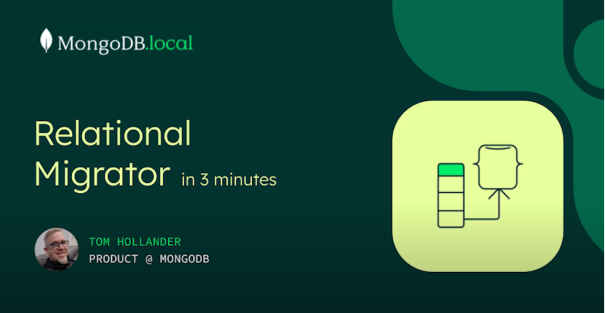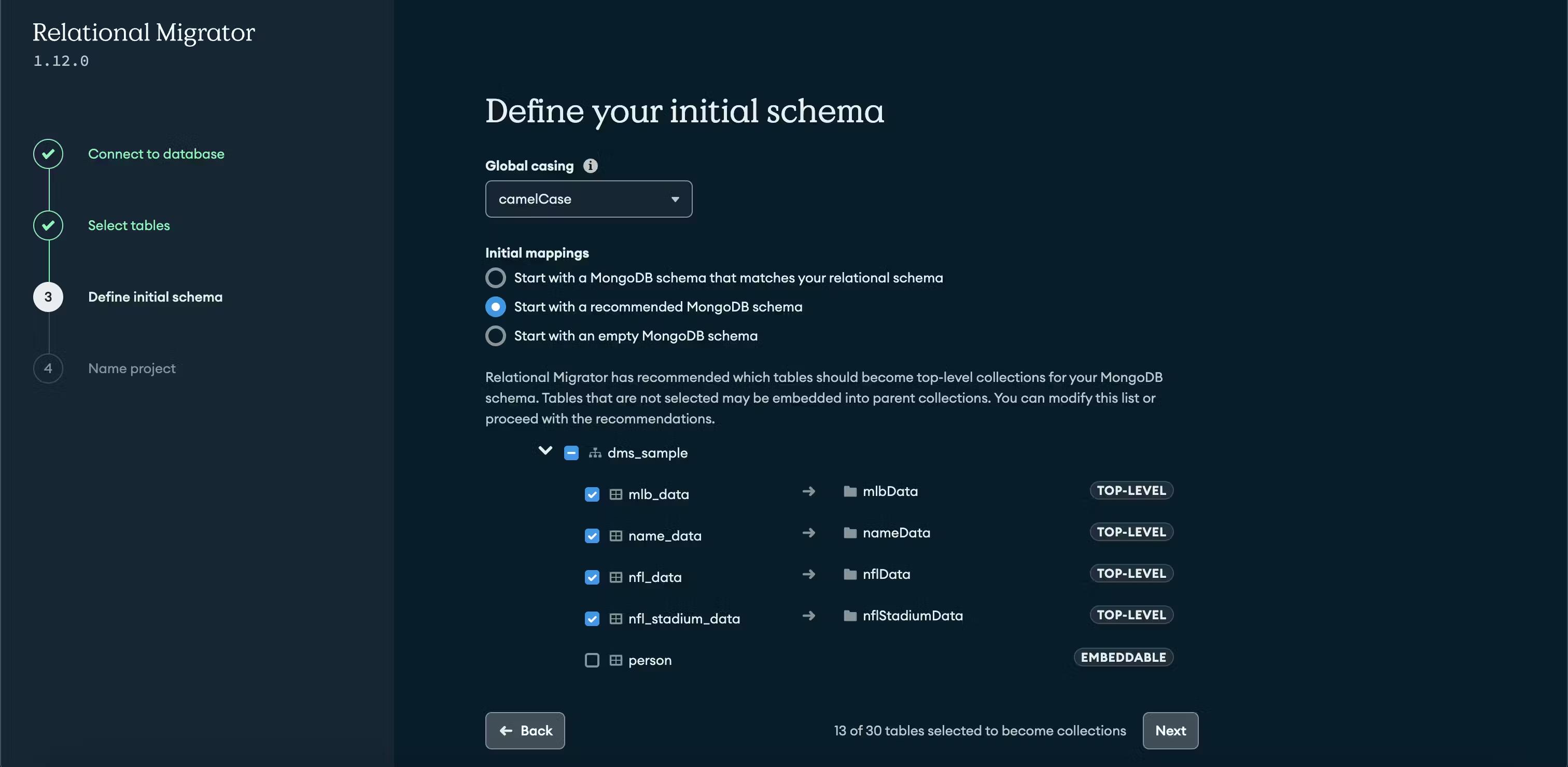Tools
Relational Migrator
Relational migrator is a free tool that streamlines migrating from legacy relational databases to MongoDB, accelerating application modernization initiatives.

Confidently migrate to MongoDB
Relational Migrator addresses the most common data modeling, code conversion, and migration challenges, reducing the effort and risk involved in migration projects.
- Migrate to MongoDB from Oracle, MySQL, SQL Server, PostgreSQL, Sybase ASE, IBM Db2, and more
- Free to download and use
- Available on Mac, Windows, Redhat, Ubuntu, and Docker
Explore Relational Migrator

See Relational Migrator in action
Discover how quickly and easily you can migrate an Oracle database to MongoDB using Relational Migrator.
Feature overview
Migrate from popular relational databases
Migrate to MongoDB from Oracle, MySQL, SQL Server, PostgreSQL, Sybase ASE, IBM Db2, and more.
Flexible, reliable data migration options
Select one-time snapshot migrations or continuous syncs with CDC, or use Apache Kafka and Confluent Cloud for extended migrations.
Easily map your relational schema to MongoDB
Use the schema visualizer to build your MongoDB schema from scratch or start with a recommended one.
Convert SQL code for MongoDB compatibility
Convert code for entity classes, persistence layers, and APIs in C#, Java, and JavaScript, using JSON data formats.
Convert SQL database objects with GenAI
Use gen AI to efficiently convert SQL queries, stored procedures, and views and validate them all within the tool.
Learn more
Start in minutes
- Connect relational database
- Build your schema
- Migrate to MongoDB
- Update app code
- Convert SQL objects
- Validate converted code

_Spot.svg)
_Spot.svg)
